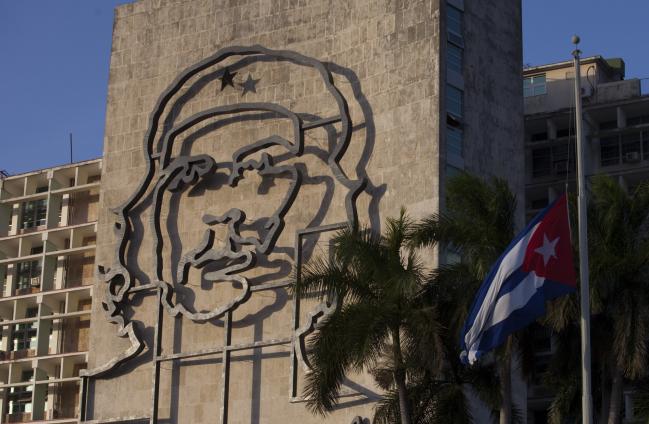(Bloomberg) -- The Trump administration will allow U.S. citizens to file lawsuits over property confiscated in Cuba during the 1959 revolution, a move that reverses two decades of policy and will create new tensions with allies whose companies do business there.
The administration plans to announce Wednesday that the U.S. will begin enforcing a provision of a 1996 law known as the Helms-Burton Act that allows Cubans who fled Fidel Castro’s regime to sue companies that have used their former property on the island. Like his predecessors, President Donald Trump had previously waived the provision, Title III, because enforcing it could result in a flood of litigation against foreign companies.
But Trump has sought to reverse a decision by former President Barack Obama’s administration to ease a trade embargo with Cuba. He also wants to punish Cuba over its support for Venezuelan President Nicolas Maduro, who has managed to stay in power despite massive U.S. sanctions and a move by the Trump administration to recognize Juan Guaido as the country’s legitimate leader.
Governments in Europe and Canada have repeatedly expressed concern over the possible fallout if the administration begins enforcing Title III. The fear is that European companies in joint ventures with Cuban entities -- to operate a hotel, for example -- could face a lawsuit if seized property is involved.
A group that advocates ending the trade embargo on Cuba said in a statement that U.S. companies also will be affected. “This decision punishes the Cuban people and American companies -- companies who were given permission by the U.S. government to do business and are now having the rug pulled from underneath them,” said James Williams (NYSE:WMB), President of Engage Cuba.
The U.S. State Department says there may be as many as 200,000 claims under the 1996 law, with some of the biggest held by companies including Office Depot Inc., Exxon Mobil Corp (NYSE:XOM). and Coca Cola Co. Many may not bring suits because they would effectively be targeting clients overseas.
While any lawsuit would take years to wind its way through the legal system, the impact will likely be felt almost immediately, said Peter Harrell, a fellow at the Center for New American Security, a Washington-based research group
“It’s going to be pretty long road ahead to actually winning any judgments but the Trump administration will get what it wants out of this because you’re going to see a number of European companies decide the risk isn’t worth it,” Harrell said.
Earlier this month, Trump blocked an agreement under which Cuban baseball players returned some of their signing bonus to the country’s baseball federation. The deal, signed with the Major League Baseball Association, had been meant to allow Cubans to travel to the U.S. freely rather than having to defect and find their way to American soil on their own.
White House National Security Adviser John Bolton plans to deliver a speech in Miami criticizing governments in Cuba, Venezuela and Nicaragua that he has branded a “troika of tyranny.”
(Updates with anti-embargo group’s comment in fifth paragraph.)
